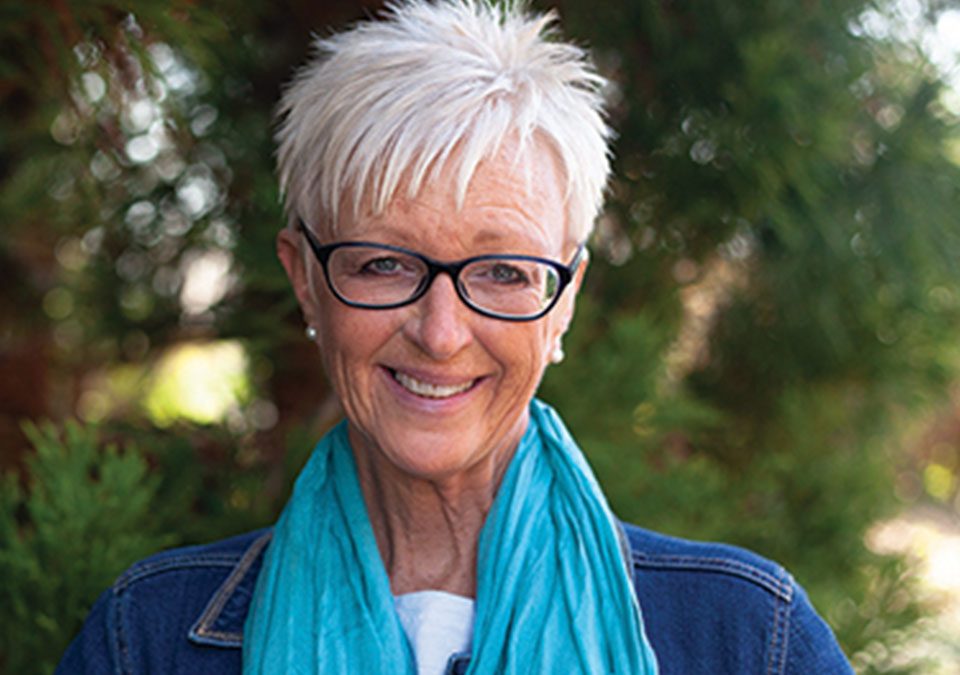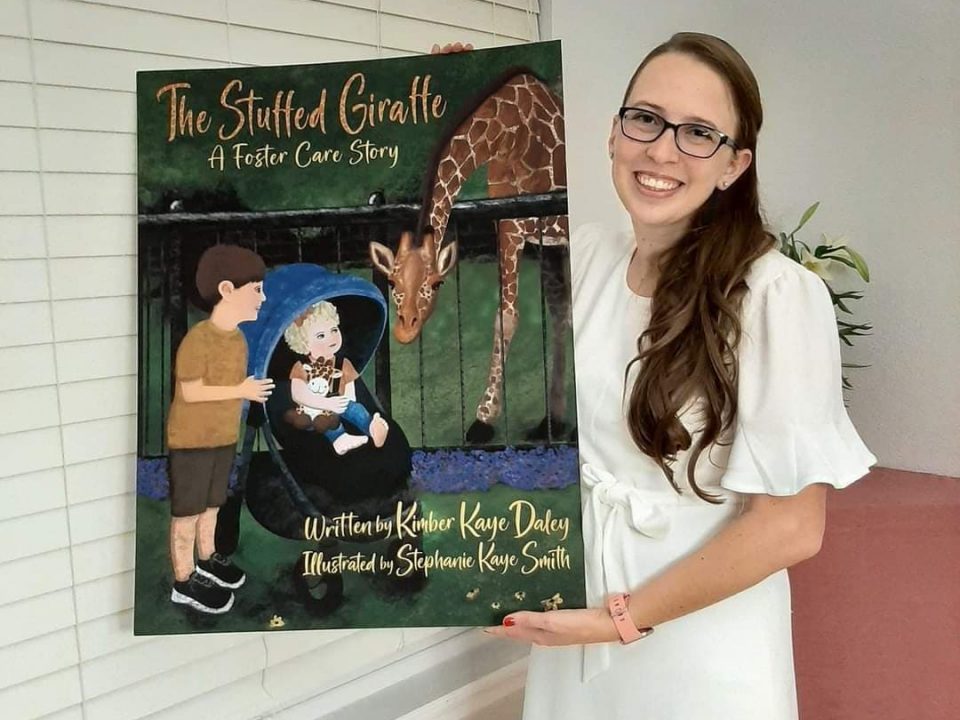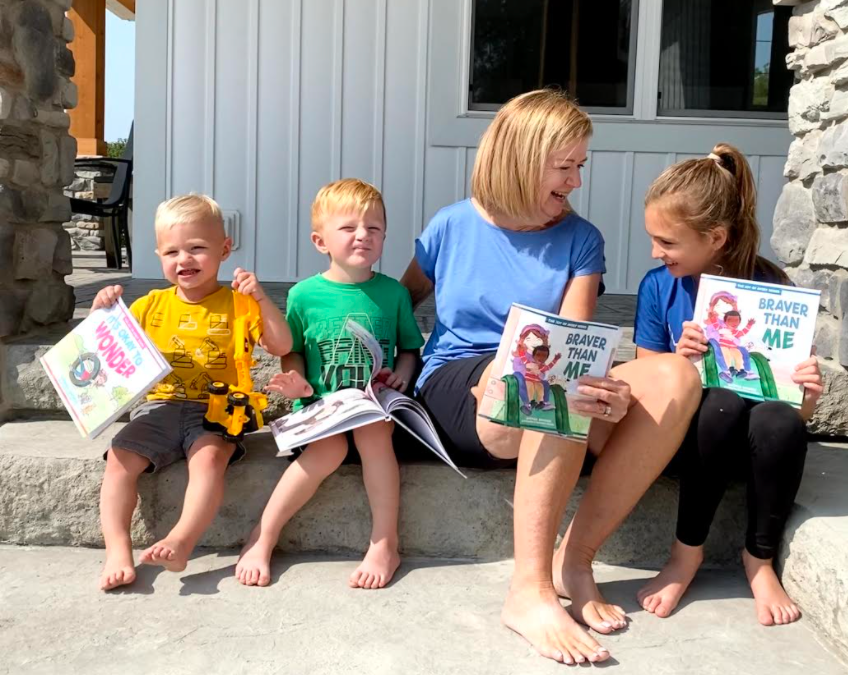
Like many grandparents, Rhonda was initially worried about the impact that foster care might have on her beloved granddaughter, Avery. When her daughter and son-in-law decided to start fostering, she had many concerns and hoped to find a helpsource within children’s books. Upon seeking answers (and maybe some comfort) for both Avery and herself, Rhonda soon realized books for the forever children of foster parents were virtually nonexistent – so she decided to write a book herself.
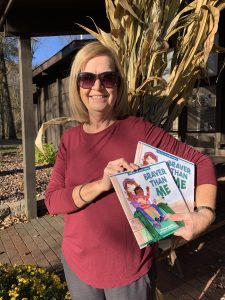
It’s Okay To Wonder is the first in her series of books introducing foster care to children already in the home. Now she is excited to add Braver Than Me to the Joy of Avery series.
For Rhonda, foster care is about kids in need. “Who is going to help meet that need? I feel like foster parents, the many families providing care, are modern day heroes.” She now recognizes the selflessness that her own daughter chose in leaving the comfortable life behind to step into the hard work of foster care. “I can’t unsee the need,” she says since her daughter’s family got licensed for foster care six years ago. “We were living life with blinders on. I didn’t make the choice to step in, my kids did.” Now her grandma heart for all her grandchildren – foster, adopted, and biological – inspires her to see the need and not turn away. “I can’t unsee it anymore. You have to. There is no other way.” And it’s true, kids are in care through no fault of their own. They are the ones bravely doing hard things every day – not by choice, but because of circumstances they cannot control.
Braver Than Me
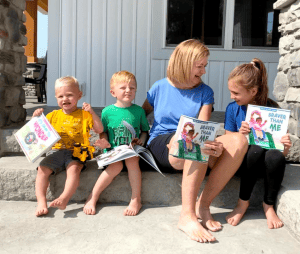
It is that bravery that inspired Rhonda’s second book, Braver than Me. After the success of It’s Okay to Wonder, Rhonda admits that she still didn’t feel quite like an author, but the words and ideas were laid on her heart to write a second book. She loved hearing stories of the impact the first book had on children and families – preparing hearts and homes to begin the journey of fostering with a little more awareness. Now, she writes the next part of the story. “It isn’t the totally true story of our family’s life,” she says as she reflects on how Braver than Me came to be. “It is what I learned and what it was like.” She emphasizes, “the kid is the hero.” In a world where we often frame ourselves as the main character in the narrative, Rhonda wanted to focus on the child in care as the brave hero. While, of course, the foster family and permanent children are selfless and often have to choose bravery when things seem uncertain or risky, the child in care is always braver. “You are brave but the kids are braver. They don’t know what’s happening. That’s really brave. It changes your whole perception.” And that’s just what Rhonda focuses on in her new book.
In Braver than Me, Avery welcomes a new foster brother into her home. It starts with “the call;” the call that changes everything as a family makes the decision to say yes to a child in need. She is ready to be a big sister, but she still has lots of questions about how things will change. As Avery, alongside her parents, welcomes Zander into the home, she learns lots of new things about a child who is different from her, but most of all she learns to give her “best love to another person.” Eventually, Avery also must learn how to say a bittersweet goodbye.
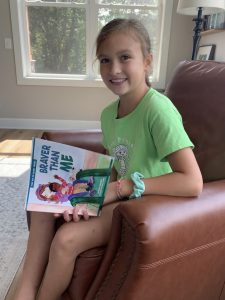
The sweet book is meant as a helpsource for both children and families who are exploring or entering the world of foster care. It is a lesson in empathy that is important for children who may not understand foster care and why other children cannot live with their families – whether temporary or forever. Foster parents get to go to training to prepare them for the journey ahead; kids don’t get that benefit. With books like this one, kids may be able to start processing some of their own mixed-up feelings and have a chance to ask their parents all the questions that are bouncing around in their head about becoming a foster sibling. Conversation starters are available at the back of the book that parents can use to initiate talks with their children.
What is Bravery?
In the book, Avery learns that she can be brave as a foster sibling but she also recognizes that Zander is braver. For Rhonda, “bravery is stepping out of your comfort zone. Especially stepping into something you’re afraid of.” For many of us, foster care can be scary. There are so many unknowns. “For me, I have to put my brave on.” It’s not just the kids in the home that are nervous for the unknowns, it may be the parents and extended family as well. What will it be like? How will our lives change? Won’t it be painful to say goodbye? “Sometimes you really do hurt badly when a child leaves. Sometimes it is so abrupt and you aren’t comfortable with where they are going,” Rhonda says. But foster families choose to say yes in spite of those fears. Rhonda focuses again on the real purpose of foster care – the kids. “My bravery is small. The kids’ bravery is bigger.”
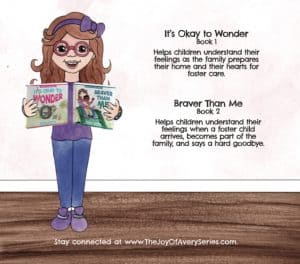
Rhonda’s advice for families considering foster care, “put your brave on!” If you feel the tug on your heart, just take the first step. If you’re looking for a resource to prepare your family, and especially your kids for foster care, consider adding Braver Than Me to your library. Together, It’s Okay to Wonder and Braver than Me help children understand their feelings as their family prepares for the unknown of foster care. Braver than Me helps children process a new child becoming part of the family and the hard goodbyes that come with a child leaving. And there’s more to come in the Joy of Avery series. Keep an eye out for the next part of Avery’s story.
It’s Okay to Wonder and Braver than Me are available for purchase online through Amazon or Barnes & Noble, or via the website www.rhondawagnerbook.com.


